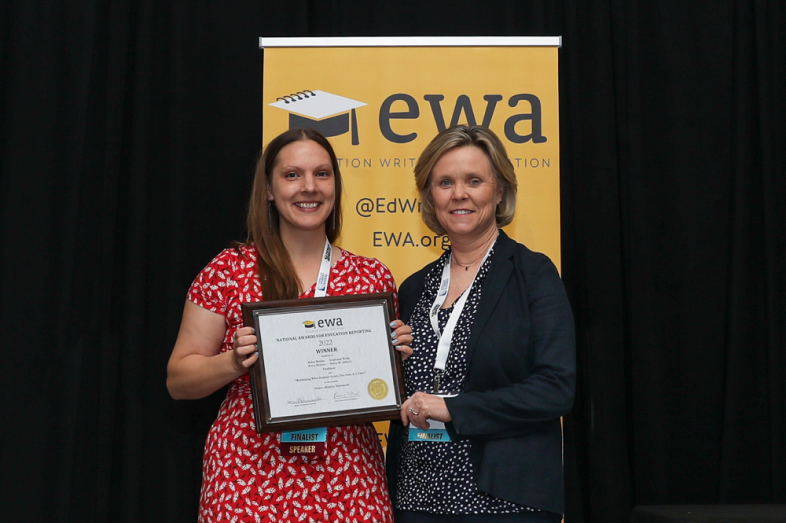Entering a journalism awards contest may seem daunting and perhaps even presumptuous. But don’t worry. Veteran journalists and honorees of the Education Writers Association’s National Awards for Education Reporting recommend several techniques to make the process easy and inspiring — and improve your chances of impressing the judges.
The most important tip is simply to enter. You can’t win if you don’t enter. And even if you don’t win, you’ll get your work in front of veteran journalists and editors who may be looking for new talent.
This advice was complied with the assistance of EWA judges Denise Zapata and David Jesse. The latter won the 2018 Ronald Moskowitz Prize for Outstanding Beat Reporting.
Choose stories to submit:
- Set aside an hour or two to review all the stories you produced in the last year. At the very least, reminding yourself of pieces from many months ago may spark follow-up story ideas. Plus, you will no doubt find it inspiring to see all the hard work and terrific stories you did!
- Be selective in choosing which stories and story elements (video, graphics, etc.) to include in an entry. More is not always better. Don’t let one average piece hold down three really great pieces. If a contest allows you to submit up to four pieces, only send four if all are really good. If only three are, send those.
- Screen for stories with compelling tops–that don’t go on forever. If you are choosing between pieces with anecdotal ledes, opt for pieces that grab the reader’s attention and get to the point of the story fairly quickly.
- When submitting an entry on a topic that has received widespread coverage (such as the pandemic), look for pieces that offer fresh approaches or perspectives the judges are more likely to remember.
What to say in your cover letter:
- Highlight the impact of your work: If your story resulted in new laws, criminal charges, or another significant action, clearly and succinctly explain that impact in your cover letter.
- Don’t oversell your entry. And don’t claim you broke a story if you did not. Our judges tend to be veteran and experienced education journalists, and Google is a handy tool.
- Explain why the topic was of interest to your particular readers. Don’t assume the judges, who may not be familiar with your community, know about the salience of your story or its context.
- Avoid typos and grammatical mistakes. If possible, ask someone to copy edit your letter.
- Detail any challenges you faced while reporting, if applicable.

